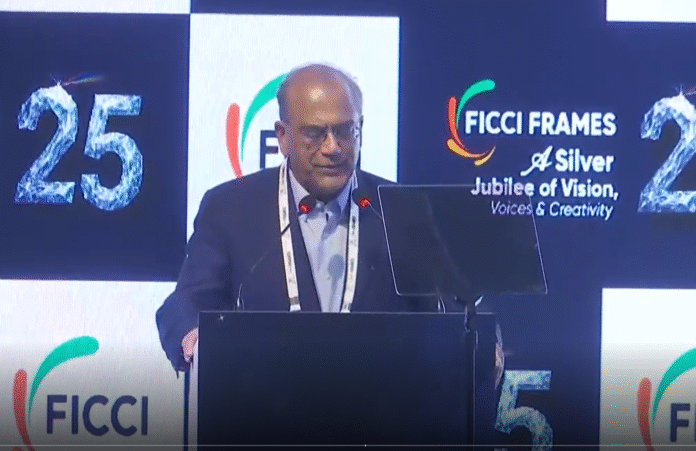
Disruption never ends and, in fact, is the only constant, Arun Purie, chairman and editor-in-chief of the India Today Group, said at the FICCI FRAMES 2025 media summit in Mumbai. Purie was addressing the media and entertainment industry, reflecting on his 50 years in the business.
In his keynote speech, he criticized the current news media business model and emphasized that disruption is the only constant in the media landscape. Referring to ‘raddi economics,’ Purie criticized the practice of pricing newspapers so low that readers could earn more from selling the scrap paper than what they paid for the paper itself.
Purie noted that throughout his 50 years in media, disruption has been a constant presence, evolving from print to television to the current digital era. “Disruption never ends. In fact, disruption is the only constant,” stressing that disruption is actually an opportunity.
He argued that the Indian news media’s business model is fundamentally flawed. Some key issues he highlighted include – over-dependence on advertising, digital revenue challenges, shrinking space for dissent, the emergence of AI as an existential threat, and algorithms.
Purie pointed out that the industry’s heavy reliance on advertising poses a risk to editorial independence. On digital revenue, he said, although publishers are reaching a vast digital audience, they receive only “crumbs” of the overall media revenue, with larger platforms taking the majority.
He expressed concern over the diminishing space for dissent in the media, attributing it not to overt censorship, but to financial pressures such as balance sheets, ad sales targets, and the rise of billionaire-owned news channels that distort the market.
Talking about AI, he identified artificial intelligence as the next significant disruptive force, warning that it poses a risk to the creation of credible news.
Criticizing the operation of digital platforms, Purie said, “The algorithm doesn’t reward depth, accuracy, or nuance. It rewards outrage… and virality.” In this era of post-truth, he emphasized the importance of telling the truth.
Purie argued that the industry needs to convince the public that well-researched, credible news is a public good worth paying for. He called on the media to innovate their business models and suggested that subscribing should be viewed as a vote for the kind of media audiences want.
















